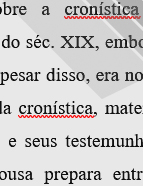

................................
Between the late 13th century and the final decades of the 16th century a set of texts were produced, copied and translated in the kingdom of Portugal, almost always in Portuguese, whose narrative flow succeeded the aridity of the annals’ register. From very early on, these texts were given the title of chronicles, due to the importance of the past in their structure and the use of narration. This succeeded the annals’ register which had become progressively abandoned throughout the Middle Ages. In addition to the royal issue, a predominant theme across the entire chronicle production, religious, anecdotal, and supposedly biographical themes were also pursued. Since the 18th century and up to the present day, historiography has shown an interest in all of them in different ways, with significant variations in the volume of studies and approaches. Hence, the question, how has the historiography on medieval and modern chronicle production evolved over this time span?
The historiographical production on chronicles emerged in Portugal mainly in the late 19th century, although it gained greater traction from the 1950s onwards. Nevertheless, in the first half of the 18th century, an interest in the study of chronicles was already evident, embodied in the collection of sources as living elements of the past and its most direct testimonies. The unpublished catalogues prepared by António Caetano de Sousa between 1721 and 1724 for the Real Academia da História [Royal Academy of History], or those published by Francisco Xavier de Meneses in 1724 are a case in point. The brief annotations often outlined a detail that compared manuscripts or apographs of the same work, highlighted gaps, general variations or the incipit for later contrast, and there were even some attempts to date the manuscripts according to their handwriting, with a view to "ascertaining the varying teachings of other treslados [copies] of the ancient Chronicles" (Collecçam dos documentos... [Collections of documents…], 1724, no. XVI, p. 5). These authentic practices of positivist history avant la lettre anticipated some of the methodologies that developed from the mid-19th century onwards. However, this auspicious prelude was not immediately followed up. Only in the late 18th century did the historiography around chronicle production witness significant development.
